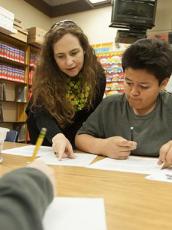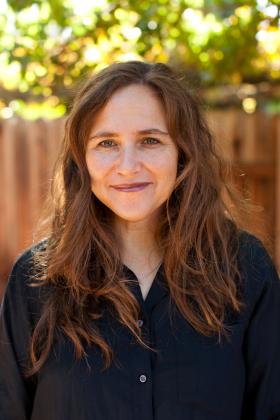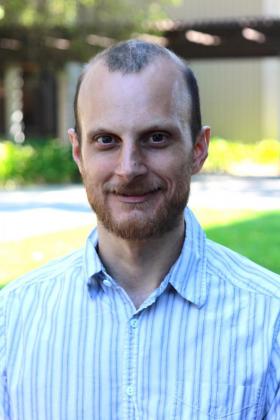Center for Poverty Research affiliates receive federal grant to study California students’ readiness in Common Core era
October 2, 2015
DAVIS, Calif. — Center for Poverty Research faculty affiliates in education and economics have been awarded nearly $5 million to find out how well the state prepares K-12 students for college and careers.
The three-year grant from the U.S. Department of Education’s Institute of Education Sciences will fund a research team led by Michal Kurlaender, an associate professor in the School of Education. Collaborators on the project include Paco Martorell, an assistant professor in the School of Education, and Scott Carrell, an associate professor of economics, as well as a team of researchers in the California Department of Education (CDE).
“Too many students enter college unprepared for college level work, likely the result of both insufficient preparation and lack of adequate information about the expectations of college, Kurlaender said. “Our goal is to better understand how efforts to improve both high school rigor and information about college readiness can impact schools and the students they serve.”
The project is a joint venture of the School of Education and the Center for Poverty Research, with which the faculty researchers are affiliated. “The interdisciplinary team, consistent with the broad goals of the center, will combine critical expertise in the institutional details of higher ed, careful use and analysis of big data, and a deep understanding of the economic environment in which schools and students operate,” said Ann Stevens, Director of the Center for Poverty Research.
“California is a solid Common Core state and the changes in our teaching and learning are sweeping,” said Harold Levine, dean of the UC Davis School of Education. “It’s critical that our teachers, school leaders and elected officials understand how these changes are impacting students’ college readiness. The research that Professor Kurlaender and her colleagues will conduct under this new IES grant will provide the ‘deep dive’ that is required to sort through these issues.”
To begin, the team will take a close look at how the state’s new “Smarter Balanced” assessments under Common Core identify students as college and career ready, and investigate differences among schools in producing college- and career- ready students. Secondly, they will examine how early signals of college readiness affects students’ high school coursework and their subsequent college outcomes.
California has been at the forefront of considering how implementation of Common Core standards can help align K-12 and higher education. National efforts to increase the number of students who earn college degrees have focused on improving this alignment. However, California policymakers and practitioners don’t yet have a sense of how different aspects of these reforms may affect student outcomes.
The project’s design to assess how college readiness signals affect student outcomes closely mimics a randomized controlled trial, which is as close as possible to the gold standard of research to evaluate public policies.
The proposed research partnership between UC Davis and the CDE builds on an existing informal relationship between researchers in the two organizations. “The CDE was eager to partner with UC Davis researchers to better understand the effects of our new state standards and assessments,” said Keric Ashley, Deputy Superintendent for the District, School, and Innovation Branch of the California Department of Education. “This project will help inform our work supporting teachers and students in improving college and career readiness.”











